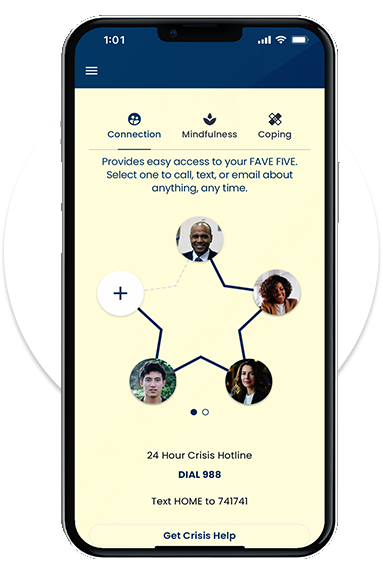The 7 Cs of Resilience is a framework designed to help individuals build and maintain resilience through specific attributes: Connection, Confidence, Competence, Contribution, Coping, Character, and Control. This framework is adapted from the Positive Youth Development movement and emphasizes the importance of each attribute in fostering a healthy developmental path and preventing risk. We love a framework and this is one of our FAVEs for building resilience.
Connection
Explanation
The first of the 7 Cs of Resilience is Connection. Connections with other people, schools, and communities offer individuals the security that allows them to stand on their own and develop creative solutions. The concept of connection emphasizes the importance of feeling supported and understood by others.
Application
- Practical Ways to Strengthen Connections: Join community groups, participate in school activities, and maintain family bonds. Building strong connections involves active participation and engagement with those around you.
- Real-life Examples or Anecdotes: Share stories of individuals who have benefited from strong connections, such as students who thrived due to supportive school environments or individuals who overcame challenges with the help of community support.
Confidence
Explanation
Confidence is essential for navigating the world, thinking outside the box, and recovering from challenges. People need confidence to believe in their abilities and to take risks that lead to personal growth.
Application
- Techniques to Build Confidence: Set small, achievable goals, celebrate personal achievements, and practice positive self-talk. Confidence-building activities can include public speaking, learning new skills, and engaging in creative projects.
- Stories or Examples: Highlight individuals who have built confidence through perseverance and support, such as a person who overcame stage fright through consistent practice and encouragement from friends.
Competence
Explanation
Competence is another of the 7 Cs of Resilience. Competence involves recognizing and developing important skills. When individuals feel competent, they are more likely to take on challenges and recover from setbacks.
Application
- Ways to Develop Competence: Engage in skill-building activities, seek constructive feedback, and provide opportunities for personal growth. Encouraging self-reliance and resilience by allowing individuals to recover from failures on their own is crucial.
- Case Studies or Personal Stories: Share examples of individuals who have developed competence through dedication and practice, such as a young athlete who improved through consistent training and mentorship.
Contribution
Explanation
Contributing to the well-being of others leads to gratitude and a sense of self-worth. People who contribute feel good about their actions and are more likely to seek help without shame.
Application
- Methods to Encourage Contribution: Volunteer work, helping peers, and participating in community service. Encouraging acts of kindness and community involvement fosters a sense of belonging and purpose.
- Examples of Positive Effects: Highlight stories of individuals who found fulfillment through contribution, such as a volunteer who discovered a passion for social work through helping at a local shelter.
Coping
Explanation
Healthy coping strategies are essential for managing stress and avoiding dangerous “quick fixes.” Coping involves finding effective ways to deal with life’s challenges, making it another of the 7 Cs of resilience.
Application
- Strategies for Healthy Coping: Practice mindfulness, engage in physical activity, and develop hobbies that provide relaxation. Techniques such as deep breathing, meditation, and creative expression can help manage stress.
- Real-life Scenarios: Share examples of individuals who used healthy coping mechanisms to overcome difficult situations, such as a person who used yoga and meditation to manage anxiety.
Character
Explanation
Character involves having a clear sense of right and wrong and a commitment to integrity. Building character is essential for making ethical decisions and fostering trust.
Application
- Activities to Build Character: Engage in ethical discussions, participate in role-playing scenarios, and reflect on personal values. Teaching the importance of honesty, responsibility, and empathy helps build strong character.
- Examples of Strong Character: Share stories of individuals who demonstrated strong character in challenging situations, such as a student who stood up against bullying in school.
Control
Explanation
Understanding the relationship between responsibility and control is crucial for making wise decisions. Control involves recognizing that privileges and respect are earned through demonstrated responsibility.
Application
- Methods to Teach Control: Set boundaries, assign responsibilities, and encourage decision-making. Teaching individuals to understand the consequences of their actions and to take responsibility fosters a sense of control.
- Stories of Empowerment: Highlight examples of individuals who gained control and empowerment through responsibility, such as a teenager who successfully managed their time and responsibilities through effective planning.

Why Resilience is Important for Mental Health
The 7Cs of Resilience help build up critical skills. Resilience is a critical factor in maintaining mental health for several reasons.
Protective Effect Against Mental Health Problems
Higher levels of resilience are consistently associated with fewer mental health problems in children, adolescents, and adults. Resilience can help protect against serious mental health conditions like depression and anxiety. Studies have shown that resilient individuals are less likely to suffer from mental health issues despite facing significant stressors.
Improved Coping and Adaptation
Resilience enables people to better manage everyday stressors and challenges. It helps individuals bounce back and adapt after experiencing adversity or trauma. By developing resilience, individuals can navigate difficult situations more effectively, maintaining their mental health and well-being.
Better Long-Term Outcomes
Resilience is associated with better academic performance, behavior, and greater life opportunities, including employment and satisfying relationships. This demonstrates that resilience not only helps in overcoming immediate challenges but also contributes to long-term success and stability.
Enhanced Stress Management
Children and young people with greater resilience are better able to manage stress, which supports their mental health now and in the future. Effective stress management is crucial for preventing burnout and maintaining overall well-being.
Promotes Optimism and Hope
Feeling optimistic and hopeful are key aspects of resilience that contribute to positive mental health and well-being. Resilience fosters a positive outlook on life, encouraging individuals to see challenges as opportunities for growth.
Multifaceted Benefits
Resilience is related to multiple protective factors like social support, coping strategies, and self-esteem, all contributing to better mental health. This holistic approach ensures that individuals have various tools and resources to maintain their mental health.
Dynamic Relationship
There appears to be a bidirectional relationship where resilience predicts better mental health in the short term, and better mental health promotes resilience over time. This reciprocal relationship highlights the importance of continuous development and maintenance of resilience.
Significant Predictor
In studies of older adults, resilience significantly predicted mental health outcomes and explained a substantial portion of the variance in mental health. This underscores the importance of fostering resilience across all age groups.

Common Misconceptions About Resilience
Resilience is Something You’re Born With
While some people may seem naturally more resilient, resilience is a skill that can be learned, developed, and improved over time through practice and experience.
Resilience Means Being Optimistic and Cheerful All the Time
Resilience doesn’t mean suppressing negative emotions or always being positive. It involves acknowledging and accepting all emotions while finding constructive ways to deal with them.
Resilient People Don’t Need Help from Others
Asking for help is not a sign of weakness. Resilience is enhanced by social connections and support networks. Reaching out to others is a sign of resilience, not a lack of it.
There’s Only One Way to Be Resilient
Resilience is personal and contextual. There are multiple ways to be resilient based on one’s personality, culture, values, and goals.
Once You Achieve Resilience, You’re Done
Resilience is not a final destination but an ongoing process of growth and adaptation. It requires continuous learning and development.
Resilience is Easy and Effortless
Building resilience takes time, practice, and commitment. It’s not a quick fix but a long-term skill to develop.
Resilience is the Same as Stress Management
While stress management techniques can support resilience, resilience is a broader concept involving purpose, determination, and the ability to adapt to adversity.
Resilient People Aren’t Bothered by Stressful Situations
Resilience doesn’t mean not being affected by stress. It means having better coping mechanisms to deal with and overcome stressful situations.
You Can Only Build Resilience on Your Own
While individual effort is important, organizations and leaders can also play a role in fostering resilience in employees and teams.

Implementing the 7 Cs in Daily Life
Observation and Measurement
- Assessing Resilience: How to periodically assess and observe resilience using the 7 Cs. Discussing observations and working through challenges helps reinforce resilience.
- Discussion and Support: Importance of discussing observations and providing support when needed. Encouraging open communication and problem-solving strengthens resilience.
Modeling Resilience
- Role of Modeling: The importance of modeling healthy resilience strategies. Demonstrating resilience through actions is more impactful than words alone.
- Ways to Demonstrate Resilience: Show resilience in everyday actions, such as handling stress calmly, seeking help when needed, and maintaining a positive outlook. Being a role model for resilience inspires others to develop their resilience skills.

The Impact of Resilience on Mental Health
Resilience, the ability to adapt and recover from adversity, plays a crucial role in mental health. Numerous studies have demonstrated the significant impact of resilience on reducing mental health problems across various populations. Here are some key findings:
Children and Adolescents
A systematic review of 25 studies found that higher levels of resilience are consistently associated with fewer mental health problems in children and adolescents. This relationship holds true despite the heterogeneity of study populations and instruments used. Factors contributing to resilience include personal skills, social support, family dynamics, and cultural context. Longitudinal studies confirm that resilience and mental health are dynamic and influenced by various stressors over time.
Older Adults
In a large-scale study, higher resilience was found to predict fewer mental health problems among older adults. The study indicated that resilience significantly contributed to explaining the variance in mental health outcomes, suggesting that enhancing resilience could be a key strategy in mental health interventions for this demographic.
General Population
Research involving diverse populations has shown that resilience is negatively correlated with symptoms of anxiety, depression, and perceived stress. For example, individuals with higher resilience scores reported significantly lower levels of depressive symptoms, anxiety, and stress.
Resilience Training Programs
A systematic review and meta-analysis of resilience training programs demonstrated that such interventions effectively improve resilience and, consequently, mental health outcomes. These programs often focus on building coping strategies, social support, and emotional regulation skills.
Natural Disasters
Studies on children and adolescents who experienced natural disasters found that higher resilience levels were associated with fewer mental health problems, such as post-traumatic stress symptoms (PTSS). These findings highlight the importance of resilience in recovery and the dynamic nature of resilience over time.
Bidirectional Relationship
A study examining the bidirectional relationship between resilience and mental health over four years found that resilience predicted mental health status in the short term (one year), while mental health status influenced resilience levels over a longer term (two years). This indicates a reciprocal relationship where improved mental health can enhance resilience and vice versa.
Conclusion
The evidence overwhelmingly supports the positive impact of resilience on mental health. Higher resilience is associated with fewer mental health problems across various age groups and contexts. These findings underscore the importance of incorporating resilience-building strategies in mental health interventions and preventive programs. By fostering resilience, individuals can better manage stress, recover from adversity, and maintain better overall mental health.
Recap of Key Points
When you’re looking to develop a “You got this!” mindset, remember the 7 Cs.
Can you summarize the 7 Cs and their importance in building resilience? Challenge yourself! Spend five minutes on each of the 7 Cs. Highlight how each C contributes to personal growth and mental well-being.
Taking steps towards building resilience and fostering meaningful relationships is a gift you can give your future self. The sooner we start on the journey of mental and emotional wellness, the sooner we get to enjoy the impact of a healthy and connected life.

Mindfulness & Connection For All
Additional Resources
Further Reading
Books, articles, and websites on resilience and the 7 Cs.
- Resilience and mental health in children and adolescents, Burr Opin Psychiatry Published 2021 Sep 21
- Resilience and Mental Health, Beyou.edu.au
- 5 Myths About Resiliency, Forbes 2016 Feb 9
Back to Resources…